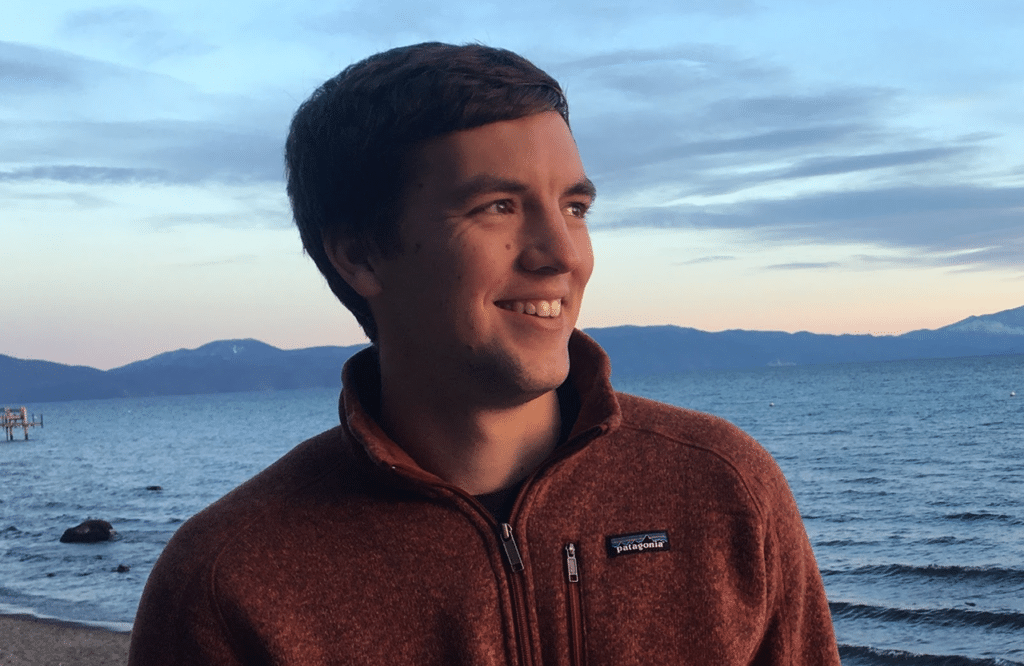Our Intersect 2017 conference is but a few weeks away now, and as we draw closer to the big event, we continue to think through the implications of the theme we’ve chosen: Learning for the Jobs of Today, Tomorrow, and Beyond. As detailed in a previous post, we’ve found ourselves thinking quite a bit about our Self-Driving Car Nanodegree program students in particular, as in many ways their paths seem emblematic of what this theme is all about, especially the “jobs of tomorrow” part.
As it turns out, however, Self-Driving Cars as an employment field is very much a “jobs of today” space, as evidenced by how many of our current students are already finding jobs! We’re honored to highlight a number of these stories and share them with you, and today we feature Caleb Kirksey.
In our first conversation with Caleb, he described his path to a job in the field in this way:
I was part of the first cohort of students in the Self Driving Car Engineer Nanodegree program, and was really impressed by the community that developed around the program. The first lane-finding project showed me that some of the skills could be learned gradually and that I could quickly produce exciting results.
One month into the program, I saw a post on the self-driving subreddit about Auro, an autonomous shuttle company in Santa Clara that was hiring. When I emailed their team, I discovered that they were a Udacity hiring partner and would like to interview me. At their company house Jit, the CTO and co-founder, showed me their autonomous vehicle, explained the business strategy, and discussed deep learning with me to get a sense of my progress in the Nanodegree program.
After that conversation, Auro brought me on as a contractor to help build out their autonomous data collection system and mobility-as-a-service app. I’ve learned a ton in my first month, including the basics of ROS and how to operate the shuttle. I’m continuing to learn from my Nanodegree program, and from my co-workers, who are experts in robotics, path planning, and controls. My goal is to have a permanent role, working on autonomous software, by the time I graduate from the Nanodegree program.
We were so excited by Caleb’s successes and career progress, that we asked if we could speak with him further, and he very graciously agreed to respond to our questions. Here are some of the wonderful insights he shared:
To what extent did your vision of the future inform your decision to get involved with this field now?
My anticipation of the future of mobility was the driving motivation behind my decision to explore robotics and deep learning. Self-driving cars will revolutionize how we live, reclaiming valuable time and reducing needless death through vehicle accidents. They will also empower a segment of the population that was previously restricted to slow, limited bus service.
Are you finding that the skills you’re learning now are already proving valuable for your career?
The foundation that Udacity provides me in deep learning and computer vision enabled me to quickly contribute at Auro, a rising startup in the mobility-as-a-service space. It’s exciting to share what I learn with my co-workers, many of whom have years of experience in robotics, but who are journeying with me to gain an understanding of deep learning. The Nanodegree projects help me hone self-discipline and the technique of breaking difficult problems into smaller, manageable chunks. Hearing the perspective of different professionals in the self-driving industry has enabled me to build my own theories around issues like the balance of deep learning and traditional robotics techniques in autonomous software.
How do you think transformative technologies like AI, Deep Learning, and Autonomous Vehicle Technology are going to change the employment landscape in the future?
It’s hard to know exactly what form the change will take, but it’s obvious that countless new roles and entire industries will develop in the coming decades. One trend that I anticipate is the steady reduction of jobs centered around repetitive tasks. Robots and AI-based software will slowly replace the human role in those processes. This will free people to take on more creative roles and exhibit their unique traits in ways that are difficult to anticipate now.
What advice would you give to someone who’s trying to decide whether a path like this is right for them, and what do you think it takes to succeed?
Working in a newly developing field like this takes tremendous self-motivation and curiosity. Deep learning and robotics (or any emerging field) are not good career paths for people who want to master a skill and then reap the benefits throughout a steady, predictable career. For many, a steady, high paycheck with minimal life disruption is the ideal job. You won’t find that in the self-driving industry as it requires constant learning, flexibility in where you live, and the assurance of continual disruption by new technology.
The opportunity to hear from someone who is simultaneously learning about—and contributing to—one of the most exciting technologies of our time makes for an extraordinary learning opportunity, and we’re so grateful to Caleb for sharing his insights!
If you’d like to find out more about Caleb, you can find him on Twitter or LinkedIn. And guess what? If you’re going to Intersect 2017, you’ll find him there as well!
Stay tuned for more stories about Self-Driving Car students in jobs!








